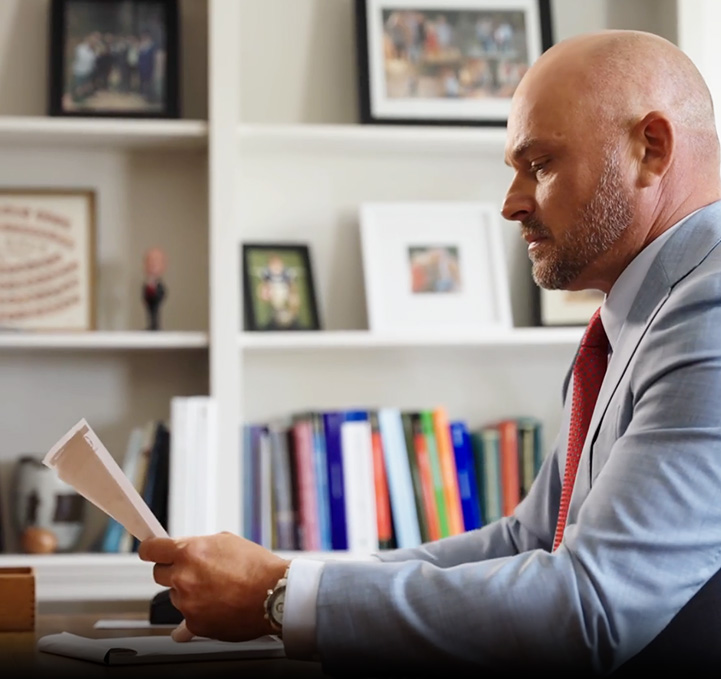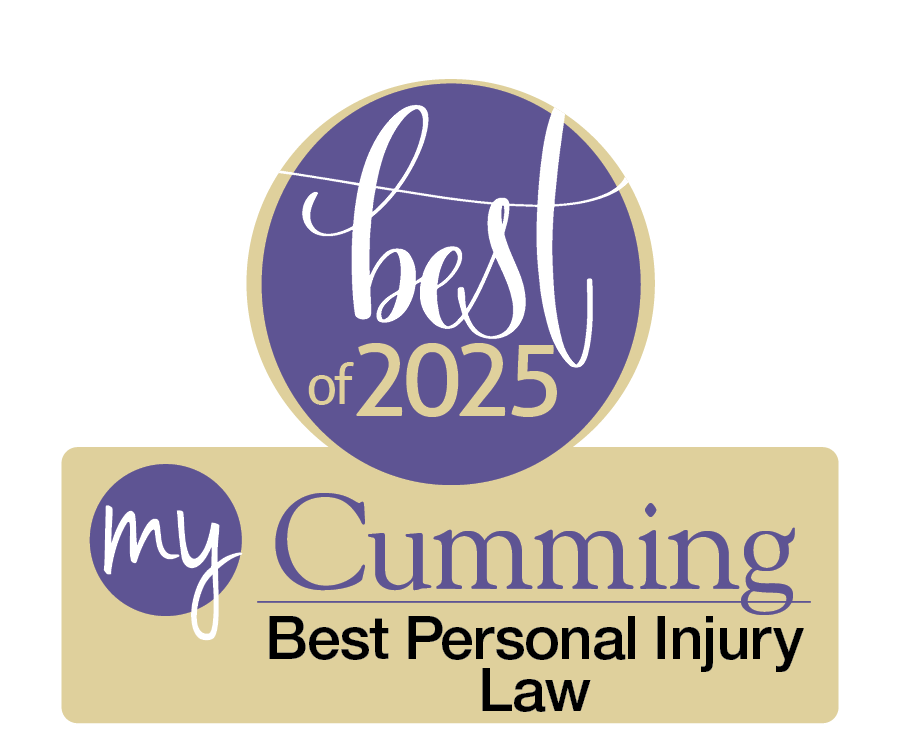

-
$5 Million Motorcyle Accident
-
$3 Million Leg Injury Case Involving Tractor Trailer on I-75
-
$2.3 Million Leg Injury When Tractor Trailer Crossed Center Line
-
$2 Million Slip & Fall at a Gas Station
-
$1.6 Million Anonymous Wrongful Death Case
-
$1.32 Million Man Involved in T-Bone Collision
-
$1 Million Family was Rear-Ended by a Tractor Trailer
-
$1 Million Client With Significant Leg Injury
-
$850K Settlement for Woman Involved in T-Bone Collision With Resulting Neck Injuries
-
$750K Neck Injury Involving Commercial Vehicle
-
$710K Settlement for Claims Involving Injuries From Motorcycle Wreck
-
$650K For Client Who Suffered a Back Injury in a Rear-End Collision
-
$630K Result for a Woman Injured in an Automobile Wreck
-
$579K For a Client Who Was A Passenger Involved in a Ride Share Car Accident
-
$525K Result for Man Injured by Dump Truck
-
$500K Settlement for Individual Injured in Accident & Suffered Broken Leg
-
$497K Verdict at Trial for an Individual Who Was Struck by a Drunk Driver
-
$450K For a Family Who Suffered Serious Injuries in an Automobile Accident
-
$400K For a Woman Who Sustained Neck Injury in Motor Vehicle Accident
-
$400K For Neck & Back Injuries Sustained When Tractor Trailer Backed Out Improperly
-
$360K Settlement for a Man Injured in a Motorcycle Accident
-
$350K Knee Injury Caused by Tractor Trailer
-
$335K Man Rear-Ended by a Landscape Truck
-
$308K Rotator Cuff Injury in a Head-On Collision
-
$275K Settlement for Client Involved in Head-On Collision
-
$250K For Man Who Suffered Neck Injury in Motor Vehicle Accident
-
$250K For Neck Injury Case
-
$235K For Officer Who Was Struck While Directing Traffic
-
$200K For an Individual Was Injured in an Accident While on the Side of the Road
-
$175K For a Serious Injury Claim
-
$172.5K For a Woman Who Injured Her Leg at Her Neighbor’s House
-
$160K Settlement for Man in Rear-End Collision
-
$150K For Client Who Injured Knee in Accident When at Fault Driver Failed to Yield
-
$140K For Man Injured When He Was Assaulted by Employee of Large Retail Store
-
$125K For a Middle-Aged Woman Who Injured Her Elbow in a Car Accident
-
$122.5K For Young Man Involved in a Head-on Collision
-
$115K Settlement for Individual Struck in the Rear by Intoxicated Driver
-
$110K For Car Accident Client With Back and Neck Pain
-
$110K Settled for Client Injured in T-Bone Collision
-
$100K Woman Who Suffered Neck & Back Pain After Rear-End Collision
-
$100K Policy Limit Settlement for Client Involved in Car Accident With Shoulder Injuries
-
$100K For Woman Involved in Rear-End Collision With Neck Injury
-
$100K For Woman Involved in Automobile Accident & Suffered Elbow Injury
Wrongful Evictions From Nursing Homes
Atlanta Lawyers Assisting Elderly Victims
According to the American Council on Aging, inadequate and involuntary discharge planning or wrongful eviction from nursing homes is a problem across the country. Nursing home discharges and transfers occur for many different reasons, but sometimes they happen because a resident needs more care than the nursing home is able to give.
If your loved one was subject to a wrongful eviction from a nursing home in Georgia, you should consult the Atlanta nursing home abuse lawyers at Van Sant Law. You may be entitled to compensation for any injuries or losses sustained as a result of a wrongful event. Federal law restricts the ability of nursing homes to evict residents.

Featured in the news
-
"Very knowledgeable, straight forward and communicated with me every step of the way."
I used Van Sant Law for my auto accident claim and I'm so glad I did! Parker, my attorney, was especially great. He really eased my pain and got me the best settlement possible. I highly recommend Van Sant Law. They did right by me and I'm very happy with their level of service.
- Mark A. -
"David and his crew worked so hard to come to a great conclusion on my case."
I was in a car accident with a tractor trailer two years ago and David Van Sant came highly recommended for someone I could talk to about the situation. Best decision I've ever made! He fought for me in ways that was truly amazing. Thank you David, Michael and everyone in the office.
- Mary -
"Van Sant Law was the right support to call after my car accident with my daughter."They were referred to me by a close friend of mine. Extremely professional, and asked the language I feel comfortable to discuss my case in. Alex Rusanov was my case manager and explained every aspect of my case during the process. I would highly recommend to use this law firm if you were injured in a car accident. Drive safe and stay alert!- Angela
-
"My results have been positive & I would highly recommend Van Sant Law to family & friends."
I had a head on collusion that left me with a totaled car & very bad injuries. From the first time I spoke to David Van Sant to the end I have been totally satisfied. I worked with Patricia she was very compassionate yet professional she was always ready to answer any concerns that I might have. I am grateful that my daughter found this law firm for me.
- Karen J. -
"I highly recommend him as a personal injury attorney."
My attorney, David Van Sant and his law firm were outstanding in handling my personal injury case. I was out of work for a considerable amount of time due to an automobile accident and Mr. Van Sant and his entire team were always kind, professional, knowledgeable and especially available. This law firm did their absolute best to answer and return calls and at no time did I ever feel like just a number or stranger. My experience with Mr. Van Sant and his law firm (from beginning to end), were very positive as well as favorable.
- Lars S. -
"I am beyond grateful for the exceptional service provided by Van Sant Law firm."
From the beginning, they demonstrated a deep understanding of my case and a commitment to achieving the best possible outcome. Their attention to details, professionalism, and expertise was truly remarkable.
- Tina R. -
"They were diligent, timely, and very informative during the whole process."
Van Sant Law worked on my personal injury case, and they have gone above and beyond in representing me as a client. They gave multiple updates throughout the course of the case. I would highly recommend Van Sant to friends and family, and I would choose them as my personal injury attorney if I were to have a personal injury claim. Thank you, Van Sant Law!
- Tyriq R. -
"Van Sant Law took care of everything."
Back in March I was involved in a rear end collision accident. The are very professional and will do whatever it takes to get the best possible offer when it comes with the insurance. 5/5 will recommend to everyone
- Juan S.

Wrongful Evictions From Nursing Homes
There are two types of discharge from a nursing home: voluntary and involuntary. When a nursing home resident agrees that it is time to leave a nursing home, there is a voluntary discharge. However, there are circumstances in which a nursing home resident does not agree with the discharge and needs further care, and this is an involuntary discharge or eviction. Nursing homes may target residents for eviction for improper reasons, such as signs of dementia-related aggression or retaliation for family members’ complaints about the treatment that they are receiving, or because they require more care.
It is traumatic for a vulnerable resident to go through a wrongful nursing home eviction. Residents have been left at their family's homes without warning or left at homeless shelters or in waiting rooms, and these actions can result in injuries or illnesses. If you or a loved one was injured as a result of a wrongful eviction from a nursing home, you may be able to recover damages.
Every Case Starts with the Right Call
Contact an Experienced Atlanta Attorney
If you were injured by a wrongful eviction from a nursing home in Georgia, you should talk to the seasoned personal injury attorneys at Van Sant Law. As an adapting and safety-conscious law firm, we can sign you up electronically without face-to-face interactions if needed, but we can also visit you in your home.
We have offices in Atlanta, Alpharetta, Athens, Cumming, Duluth, Lawrenceville, and Gainesville, and our lawyers represent clients throughout Georgia. Call us at (800) 234-9556 or complete our online form.







.2409091320550.png)





.2510011448177.png)
.2510011448168.png)
.2510011448163.png)
.2510011448182.png)
.2510301502081.png)
.2510301502081.png)

